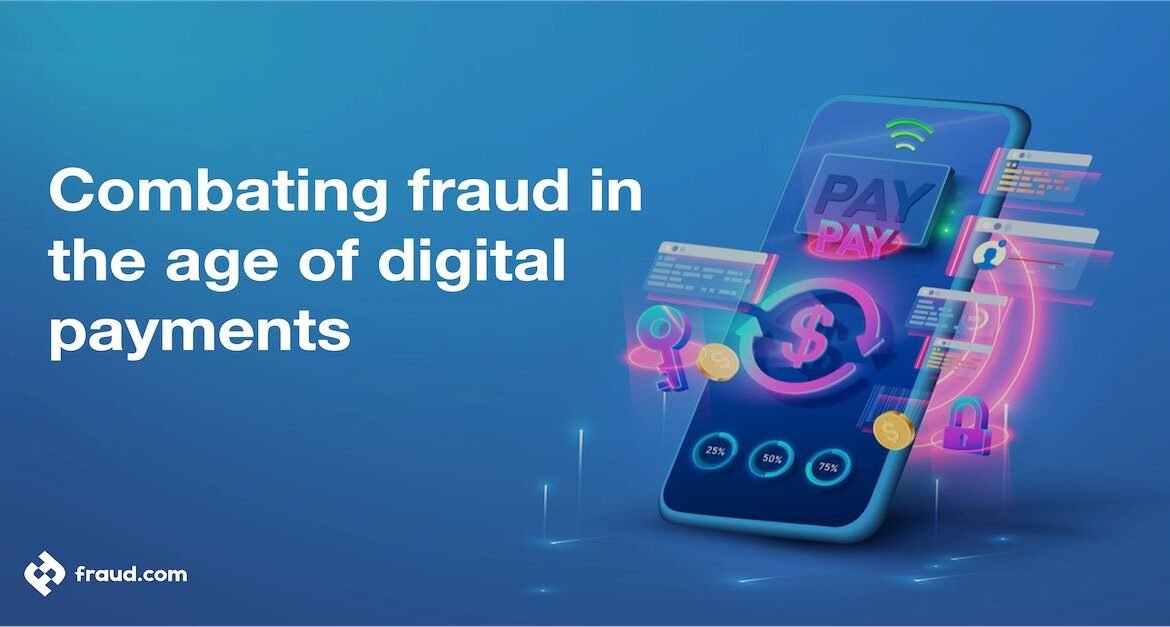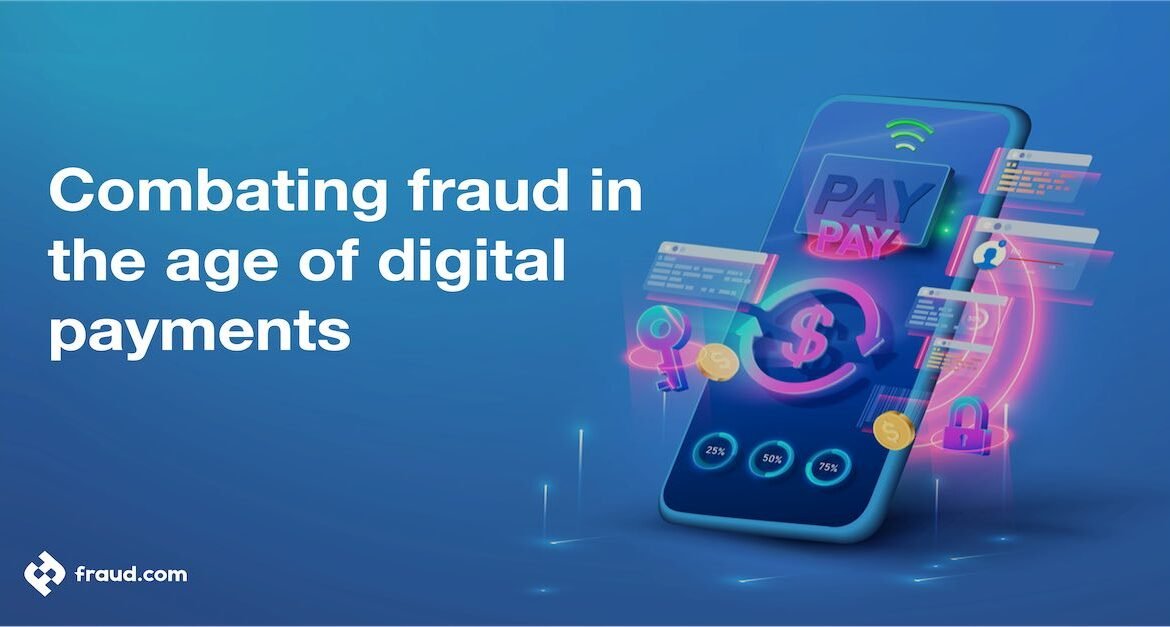

ADDRESSING FRAUD IN DIGITAL DEBT COLLECTION
Introduction
Fraud In Digital Debt Collection;
In today’s digital age, debt collection has increasingly moved online, offering convenience for both collectors and consumers. However, this transition has also opened the door to fraudulent practices that can undermine the integrity of the industry and harm consumers. As a matter of fact, it is important to define the key words in order to facilitate the comprehension of this topic. First and foremost, fraud is the intentional deception or misinterpretation to secure unfair or unlawful gain, or to cause harm or loss.
Moreover, debt collection is the process of recovering outstanding debts owed by individuals, or businesses to creditors, lenders or financial institutions. Additionally, digital debt collection is the use of digital channels and technologies to recover outstanding debts, including online platforms, mobile apps, emails, texts and social media .It is crucial to develop concrete strategies to combat fraud effectively in digital debt collection. This article explores the nature of fraud in digital debt collection, its implications, and actionable strategies to address it.
In today’s fast-evolving digital economy, debt collection practices have undergone a significant transformation. The days of physical letters and persistent phone calls have largely been replaced by digital communications, AI-powered chatbots, and algorithm-driven recovery systems. While these innovations have improved the efficiency of debt recovery, they have also opened the floodgates to an alarming rise in fraudulent activities. Fraud in digital debt collection has become a growing concern for regulators, consumers, financial institutions, and legal professionals alike. As debt recovery processes become more digitized, the potential for abuse, identity theft, and unauthorized access to sensitive personal information increases. This calls for urgent attention and well-structured strategies to safeguard digital debt collection from fraudulent infiltration.
Digital debt collection relies heavily on automation, artificial intelligence, machine learning, and online databases. However, these same tools can be manipulated by fraudsters to impersonate collection agents, falsify debt accounts, or even create fictitious loan obligations. Many unsuspecting individuals receive scam messages claiming they owe money to unknown lenders, often with threats of arrest, job loss, or legal action. These messages typically contain manipulated logos of real financial institutions, making it difficult to discern legitimate claims from fraudulent ones. The frequency and sophistication of such scams have led to a serious erosion of public trust in digital debt collection platforms.
The Nigerian financial ecosystem has also felt the impact of these fraud trends. With a rising number of fintech companies emerging in the digital lending space, the regulatory frameworks are still playing catch-up with technological advancement. While the Central Bank of Nigeria (CBN) and the Federal Competition and Consumer Protection Commission (FCCPC) have rolled out some guidelines, many digital lenders still operate in gray areas, leaving debtors vulnerable to exploitation. Reports have surfaced regarding fake digital lenders sending unlawful threats, exposing debtor data, and coercing payments through illegal means. This makes it imperative to examine how fraud manifests within digital debt collection and what proactive steps can be taken to address it.
On the other hand, legitimate digital debt collection agencies also suffer reputational damage due to the activities of impostors and rogue agents. These fraudulent schemes not only rob people of their hard-earned money but also hinder the progress of digital finance by breeding mistrust. The ripple effect of such distrust extends to slowing financial inclusion, weakening credit systems, and disincentivizing digital lending innovation. In some instances, even those who genuinely owe debts refuse to engage with collection messages for fear of being scammed.
There is also a legal dimension to this issue. Fraud in digital debt collection intersects with several areas of law including data protection, consumer rights, cybersecurity law, and financial regulation. The Nigerian Data Protection Act (NDPA), for instance, mandates the protection of personal data, which is often compromised during fraudulent debt recovery attempts. Additionally, fraudulent practices may lead to breaches of laws against impersonation, defamation, harassment, and unlawful debt recovery methods. This raises the question of how legal professionals, regulators, and debt collection companies can work together to ensure compliance and protection for all parties involved.
One of the main challenges in addressing fraud in this area is the anonymity that digital platforms afford to fraudsters. It is relatively easy to create fake websites, mimic company profiles, and send phishing messages from untraceable email addresses or phone numbers. This anonymity makes it hard for victims to trace the perpetrators or seek timely legal redress. Moreover, law enforcement agencies often lack the technical expertise and digital forensic capacity to investigate and prosecute such cases effectively. Consequently, fraudsters continue to operate with relative impunity, confident that they are unlikely to be caught or punished.
In the fight against fraud in digital debt collection, technology must be both the sword and the shield. Artificial intelligence and machine learning can be employed not only for automation but also for fraud detection and risk assessment. Stronger identity verification protocols, encrypted communication channels, and AI-powered fraud detection tools can reduce the chances of unauthorized access to debtor accounts. Financial institutions and digital lenders must invest in cybersecurity infrastructure and ensure regular audits of their systems.
Furthermore, public awareness campaigns are vital in educating consumers about their rights and how to recognize fraudulent debt collection tactics. Collaborations between regulatory agencies, fintech companies, and civil society organizations can lead to the creation of standardized guidelines and best practices that will reduce fraud risk while enhancing transparency. Legal practitioners also have a role to play in advising digital debt collectors on regulatory compliance, assisting victims of fraud, and prosecuting perpetrators under existing laws.
In conclusion, the growth of digital debt collection has brought with it both convenience and complexity. While the automation of debt recovery processes can lead to higher efficiency and lower costs, it also presents new opportunities for fraud. By combining legal regulation, technological innovation, and public education, stakeholders can collectively address the growing threat of fraud in digital debt collection. This introductory overview sets the stage for a deeper exploration into the root causes of fraud, legal remedies available, and emerging technologies designed to counter fraudulent activities in this critical financial service sector.
The Landscape of Digital Debt Collection
The digital debt collection landscape has evolved significantly over the last decade. Traditional methods, such as phone calls and letters, have largely been supplemented by mails, text messages, and online portals. While these methods provide efficiency and speed, they also create opportunities for fraud. Scammers often impersonate legitimate debt collectors, using sophisticated techniques to mislead consumers and collect payments on debts that may not even exist.
Types of Fraud in Digital Debt Collection
1. Impersonation Scams: Fraudsters often pose as legitimate debt collectors, contacting consumers via email or text. They may use official-looking logos and language to lend credibility to their claims.
2. Phishing: Scammers may send emails that appear to be from legitimate debt collection agencies, asking consumers to provide sensitive personal information or click on malicious links.
3. Fake Debts: In some cases, scammers create fictitious debts, contacting individuals about amounts they do not owe, and demanding immediate payment.
4. Payment Fraud: Collectors may face risks related to payment processing, where unauthorized transactions or identity theft occur.
The Impact of Fraud on Consumers and Businesses
The repercussions of fraud in digital debt collection can be severe. For consumers, falling victim to scams can result in financial loss, damage to credit scores, and prolonged stress. Many individuals may end up paying debts they do not owe, exacerbating their financial situation. For businesses, fraud can lead to reputational damage, legal liabilities, and financial losses. If a debt collection agency is found to engage in or inadvertently facilitate fraud, it can face significant regulatory scrutiny and loss of consumer trust. Consequently, addressing fraud is not just a matter of compliance but essential for maintaining a healthy business relationship with clients.
Strategies for Addressing Fraud in Digital Debt Collection
1. Enhancing Verification Processes
One of the most effective ways to combat fraud is to implement rigorous verification processes. Before engaging with consumers, debt collection agencies should:
-Confirm Identity: Use multi-factor authentication to verify the identity of individuals accessing accounts or making payments. This can include SMS codes, email confirmations, or biometric data.
-Validate Debts: Require documentation for the debts being collected. Consumers should be provided with a clear breakdown of the debt, including the original creditor and account details, allowing them to verify its legitimacy.
2. Educating Consumers
Consumer education is vital in empowering individuals to recognize and report fraud. Agencies should
-Provide resources: Create accessible guides on identifying legitimate debt collection practices versus fraudulent ones. This can include warning signs and steps to take if they suspect fraud
-Encourage Verification: Advice consumers to verify any debt claims through official channels before making payments. Providing a contact number for the original creditor can help in this process.
3. Leveraging Technology
Technology plays a critical role in both facilitating debt collection and combating fraud. Agencies should:
-Employ AI and Machine Learning: Utilize AI tools to analyze patterns in consumer behavior and identify anomalies that may indicate fraud. Machine learning algorithms can improve detection rates over time by learning from past incidents.
-Implement Secure Payment System: Use secure payment processing platforms that offer fraud detection capabilities. This includes systems that monitor transactions for unusual activity and flag potential fraudulent transactions
4. Developing Transparent Policies
Transparency is key to building trust and reducing the potential for fraud. Agencies should:
-Outline Communication Protocols: Clearly define how and when collectors will contact consumers. Establishing guidelines for the frequency and mode of communication can prevent misunderstandings and provide consumers with a sense of security.
-Provide Clear Dispute Resolution Processes: Ensure that consumers know how to dispute a debt or report suspected fraud. Having a straightforward process in place can help mitigate issues before they escalate.
5. Regular Audits and Compliance Checks
Regularly auditing processes can help identify vulnerabilities in debt collection practices. Agencies should:
– Conduct Internal Review: Periodically assess compliance with industry regulations and internal policies. This includes reviewing communication records, payment transactions, and dispute resolutions.
– Stay Updated on Regulations: Keep abreast of changes in laws related to debt collection, such as the Fair Debt Collection Practices Act (FDCPA) and the Telephone Consumer Protection Act (TCPA). Compliance not only protects consumers but also safeguards businesses from potential legal issues.
6. Collaborating with Financial Institutions
Building partnerships with banks and credit bureaus can enhance fraud detection efforts. Agencies should:
– Share Information: Collaborate with financial institutions to share data on known scams and fraudulent activities. This can help create a unified approach to combating fraud across the industry.
-Participate in Industry Networks: Join industry groups that focus on sharing best practices and resources for fraud prevention. Engaging with other professionals can lead to innovative solutions and collaborative efforts.
7. Fostering a Culture of Integrity
Finally, fostering a culture of integrity within the organization is paramount. Agencies should:
– Train Employees Regularly: Provide ongoing training on ethical practices, compliance, and fraud detection. Empower employees to recognize and report suspicious activity.
– Encourage Reporting of Fraudulent Activity: Create a safe environment where employees feel comfortable reporting suspected fraud without fear of repercussions. This can lead to quicker identification and resolution of issues
Conclusion
To crown it all, on the one hand proactive measures should be implemented in order to create a safer environment for all the stakeholders, ensuring that the benefits of digital debt collection are realized without compromising security and integrity. And on the other hand, Strategies such as implementing robust verification processes, educating consumers, leveraging technology, developing transparent policies, conducting regular audits, collaborating with financial institutions, and fostering a culture of integrity, should be employed by debt collection agencies in order to reduce risks associated with fraud . In doing so, they not only protect their business interests but also enhance the overall consumer experience, building trust and credibility in an increasingly digital world.
Tackling fraud in digital debt collection is not merely a technological issue—it is a multifaceted challenge that encompasses legal integrity, ethical debt practices, consumer protection, and financial system credibility. The emergence of digital platforms in the financial sector has outpaced traditional regulatory frameworks, leaving room for fraudulent agents to exploit gaps in the system. As we reflect on the rising incidents of impersonation, data breaches, coercion, and manipulation in digital debt recovery, one fact remains unarguable: urgent and comprehensive reform is necessary to restore trust and ensure that digital debt collection serves its rightful purpose.
At the core of this transformation is the need for accountability. Fintech companies and digital lenders must be held to strict standards in verifying the identities of their agents and the debts they claim to recover. Proper documentation, centralized debtor databases, and secure authentication processes can serve as essential checks against fraudulent activities. By incorporating these systems into their operational framework, digital debt collectors can not only enhance their legitimacy but also build long-term consumer confidence.
The Nigerian legal and regulatory environment must also evolve to address this issue head-on. While efforts by the CBN and FCCPC have made significant strides, enforcement mechanisms remain weak and largely reactive. A proactive and cohesive legal strategy should include regular monitoring of digital debt recovery companies, publication of licensed operators, and stiffer penalties for violations. Additionally, there should be improved synergy between law enforcement, telecommunications operators, and financial watchdogs to trace and apprehend fraudulent actors hiding behind anonymous digital identities.
Consumer empowerment is another crucial area in addressing fraud in digital debt collection. Many consumers are unaware of their legal rights, and fraudsters exploit this ignorance. It is essential that debtors understand what constitutes legitimate collection practices and how to respond to suspicious demands. Public education campaigns, accessible complaint channels, and digital literacy programs can go a long way in helping individuals protect themselves. Regulatory bodies and consumer advocacy groups must take the lead in demystifying digital finance and empowering users to make informed decisions.
On the technology front, digital lenders should implement multi-factor authentication systems, robust cybersecurity measures, and continuous fraud risk assessments. The use of blockchain technology for debt record management and smart contracts can also help enhance transparency and prevent data manipulation. Integrating AI-driven fraud detection tools into digital debt collection platforms can preempt fraudulent activity before it causes harm. For these tools to be effective, however, fintech companies must be willing to invest in long-term data security strategies rather than temporary fixes.
Legal professionals, too, have a pivotal role to play. They can assist clients in reviewing digital debt recovery policies, drafting fair and compliant collection procedures, and pursuing legal remedies for victims of fraud. By staying abreast of technological trends and regulatory updates, lawyers can bridge the gap between innovation and legality. Courts must also adapt to new realities by embracing digital evidence, fast-tracking fraud-related disputes, and imposing deterrent sanctions on offenders.
Furthermore, collaboration across sectors is vital. The private sector, public agencies, technology developers, and civil society organizations must pool resources and expertise to combat digital debt collection fraud. An integrated approach that combines regulation, technology, and advocacy will be far more effective than fragmented efforts. Industry associations should develop a shared code of conduct for digital debt recovery, while regulators can ensure compliance through regular audits and certifications.
In addressing fraud in digital debt collection, it is also important to strike a balance between creditor rights and debtor protections. While creditors have the right to recover what they are owed, this right must be exercised within the bounds of the law and ethical conduct. Digital debt collection should not become a vehicle for intimidation, extortion, or exploitation. Instead, it should reflect professionalism, fairness, and a commitment to upholding consumer dignity.
Ultimately, the path forward lies in accountability, innovation, and collaboration. Fraud in digital debt collection may be a modern problem, but it demands a timeless solution—one rooted in justice, transparency, and the rule of law. By adopting best practices, enforcing robust regulations, and prioritizing consumer welfare, stakeholders can ensure that digital debt collection fulfills its promise without falling prey to criminal abuse. The journey may be complex, but with determination and unity, Nigeria—and indeed the global community—can effectively address and overcome the scourge of fraud in digital debt collection.
· Digital Debt Collection Fraud
· Impersonation Scams
· Fraudulent Debt Collectors
· Consumer Protection in Debt Collection
· Secure Payment Systems
· Phishing in Debt Collection
· Debt Verification Process
· AI and Fraud Detection
· Multi-Factor Authentication
· Consumer Education on Debt Collection
· Compliance in Digital Debt Collection
· Transparent Collection Policies
· Identity Verification in Debt Collection
· Secure Debt Collection Practices
· Fraud Prevention Strategies
Contact Us
Chaman Law Firm today. Our offices are conveniently located in Lagos, FCT Abuja, Ogun State, and the UK. We are readily available to assist you with your legal needs. Whether you require consultation, representation, or ongoing legal support, Chaman Law Firm is your trusted partner.
Call us at 08024200080 or email us at info@chamanlawfirm.com to schedule a consultation.


